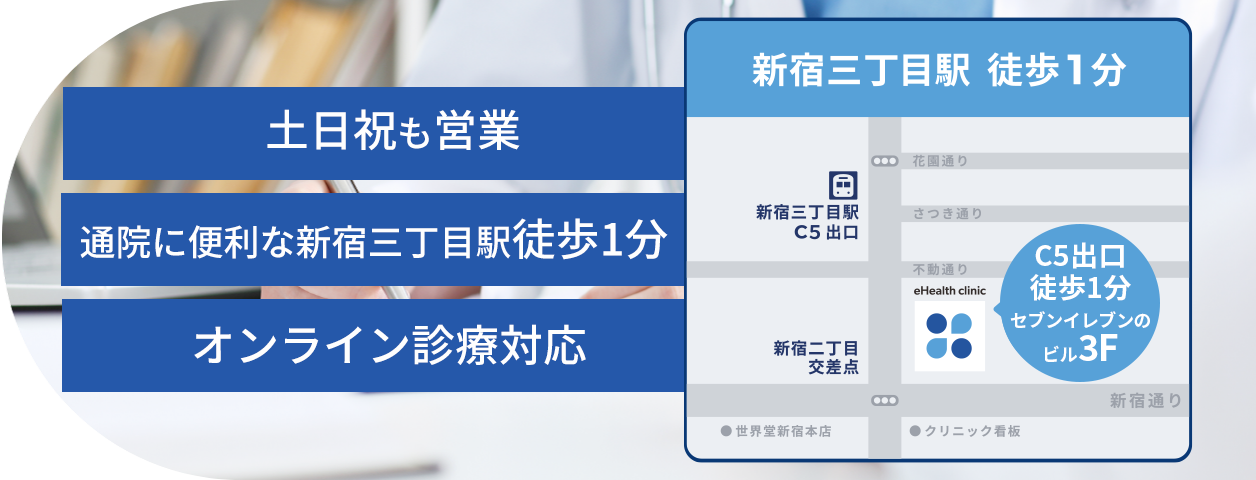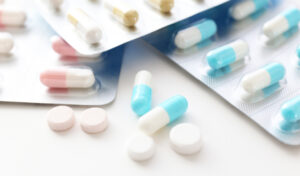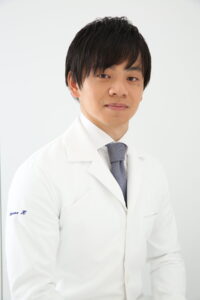NAD⁺点滴療法


Hypertension refers to a condition where the blood pressure remains consistently higher than normal. In Japan, it is said that one in every two adults has hypertension. If left untreated, it can lead to arteriosclerosis (hardening of the arteries) and life-threatening conditions such as chronic kidney disease, cerebral hemorrhage, stroke, aortic aneurysm, and heart failure. Therefore, taking measures at an early stage is considered crucial.
Hypertension can be classified into primary hypertension, where the cause is unknown, and secondary hypertension, which is caused by an underlying condition. Primary hypertension is believed to be influenced by genetic factors and lifestyle habits (such as obesity, excessive alcohol consumption, high salt intake, stress, lack of exercise, and smoking), and it accounts for about 90% of hypertension cases.
■Reservation fee 5,500 yen (tax included)
Reservation fee will be charged when you make a reservation. If you change your reservation within 3 business days of the reservation date, you will not be charged a new reservation fee.
Please note that cancellations are generally not refundable.
※Reservation fee is charged only when you make a reservation through the dedicated reservation form.
※Reservation time is only an estimate and may vary depending on other patients’ treatments, such as emergency response and urgent response.
※If you cancel a self-pay treatment reservation made through the dedicated reservation form on the day of the reservation, a cancellation fee of 100% of the cost will be charged.
Hypertension is diagnosed based on two indicators: “clinic blood pressure” measured at medical institutions and “home blood pressure” measured at home. Blood pressure can vary depending on the time of day and the environment, so the values obtained during health check-ups or medical measurements may not always be accurate. Particularly, home blood pressure measurements are considered more important than clinic blood pressure in predicting the onset of conditions such as stroke and myocardial infarction. Regular blood pressure measurements at home are recommended to prevent future serious illnesses.
Hypertension typically doesn’t present noticeable symptoms. While headaches and neck stiffness can occur more frequently when blood pressure is high, these symptoms can also occur independently of hypertension. Therefore, it can be challenging to diagnose hypertension based solely on symptoms. However, as the condition progresses, the following symptoms may manifest:
In the case of hypertension, symptoms may not appear much initially. However, if this condition persists, blood vessels can be damaged without one realizing it, leading to life-threatening conditions such as cerebral hemorrhage, stroke, aortic aneurysm, and heart failure. Therefore, it is important to undergo a health check-up once a year.
Additionally, it is crucial to measure blood pressure using a home blood pressure monitor. If the systolic blood pressure repeatedly measures 140 mmHg or higher, or the diastolic blood pressure measures 90 mmHg or higher, it is advisable to consider seeking medical attention. If there are symptoms as mentioned earlier, in addition to high blood pressure, there is a potential risk of complications. Therefore, it is recommended to promptly consult a primary care physician or an internal medicine specialist.
In the dietary management of hypertension, identifying and addressing the problematic aspects of one’s current eating habits is important. Guidance on meal planning and cooking methods may be provided by a nutritionist if necessary. One of the most crucial aspects emphasized in the dietary management of hypertension is the careful control of excessive salt intake, which is known to be a contributing factor.
For individuals with hypertension, it is recommended to consume less than 6 grams of salt per day. Additionally, incorporating foods containing potassium can help promote salt excretion. Therefore, actively including vegetables, fruits, soy products, and other potassium-rich foods is beneficial. However, in cases of comorbidities or specific conditions, potassium intake may be restricted, so it is important to consult with a physician regarding the actual dietary plan.
Furthermore, for individuals who are overweight, there is an increased risk of developing hypertension. Therefore, it is crucial to limit excessive calorie intake and maintain a healthy body weight (BMI less than 25). The appropriate calorie intake varies among patients and is typically determined considering factors such as age, gender, and activity level.
Engaging in appropriate and regular exercise is said to relieve the tension of the sympathetic nervous system, which plays a role in widening blood vessels and increasing blood pressure to deliver oxygen and nutrients to the muscles. As a result, it helps lower blood pressure.
Specifically, it is recommended to engage in light aerobic exercises such as brisk walking, step-ups, or running for approximately 30 minutes every day or around 180 minutes per week. However, it is important to note that the intensity and type of exercise should be chosen based on individual factors, such as the severity of hypertension and any coexisting conditions. Consulting with a physician is advisable to select the exercise regimen that suits one’s needs.
If dietary and exercise interventions do not effectively improve blood pressure, the use of antihypertensive medications, which are known to lower blood pressure, may be considered. There are several types of antihypertensive drugs available, and the appropriate choice depends on the patient’s condition, presence of comorbidities, and other factors. Sometimes, a combination of different medications may be prescribed.
It cannot be emphasized enough that lifestyle plays a significant role in hypertension. When it comes to preventing hypertension, it is crucial to reevaluate and improve certain aspects of one’s lifestyle. First and foremost, smoking is a cause of arterial hardening and can contribute to the development and worsening of hypertension, so quitting smoking is highly recommended. Excessive alcohol consumption can also lead to increased blood pressure, so it is important to drink in moderation.
Additionally, fluctuations in temperature can cause temporary spikes in blood pressure, so it is advisable to maintain a small temperature difference between indoor and outdoor environments and dress appropriately when in colder areas. During bathing, soaking in lukewarm water at around 40°C for 5 to 10 minutes is recommended, and it is beneficial to keep the bathroom and changing area heated. Moreover, ensuring an adequate amount of sleep and maintaining a regular daily routine are important for reducing fatigue and stress.
Hypertension often lacks noticeable symptoms, and if left untreated without detection, it can potentially lead to life-threatening conditions. Therefore, it is important to undergo regular health check-ups at least once a year and monitor your blood pressure at home to ensure early detection and prompt treatment. If you experience any concerning symptoms, it is advisable to seek medical consultation as soon as possible.

■Reservation fee 5,500 yen (tax included)
Reservation fee will be charged when you make a reservation. If you change your reservation within 3 business days of the reservation date, you will not be charged a new reservation fee.
Please note that cancellations are generally not refundable.
※Reservation fee is charged only when you make a reservation through the dedicated reservation form.
※Reservation time is only an estimate and may vary depending on other patients’ treatments, such as emergency response and urgent response.
※If you cancel a self-pay treatment reservation made through the dedicated reservation form on the day of the reservation, a cancellation fee of 100% of the cost will be charged.
【1 minute walk from Shinjuku Sanchome Exit C5】
Director speaks English and Chinese. Available on Saturdays, Sundays, and national holidays. Open until 20:00 on weekdays. 24-hour web reservations available.Internal medicine, nephrology, allergology, urology.
Address: Shinjuku Dori Toyo Bldg. 3F, 2-6-4 Shinjuku, Shinjuku-ku, Tokyo 160-0022, Japan
・1 minute walk from Shinjuku Sanchome Station (Exit C5) on Tokyo Metro Marunouchi Line, Tokyo Metro Fukutoshin Line and Toei Subway Shinjuku Line
・7 minutes walk from Southeast Exit of JR Shinjuku Station
・5-minute walk from Shinjuku-Gyoenmae Station (Exit 2) on Tokyo Metro Marunouchi Line
If you have any questions, please don’t hesitate to let me know.
Email:contact@ehealthclinic.jp

Hoichi Amano (M.D.,PhD)
・Administrator of eHealth clinic
・Visiting lecturer (School of Public Health,Teikyo University)
・Locum Doctor (Teikyo University Chiba Medical Center)
・Occupational health physician for several companies
• Education
2018 – 2021 Doctorate in Public Health, Teikyo University Graduate School of Public Health, Tokyo, Japan
2016-2018 Master’s Degree in Public Health, Teikyo University Graduate School of Public Health, Tokyo, Japan
2004-2010 M.D., Saitama Medical University, Faculty of Medicine, Saitama, Japan
• Certifications
Board Certified Member of the Japanese Society of Internal Medicine
Board Certified Nephrologist of the Japanese Society of Nephrology
Board Certified Member of the Japanese Society of Anti-Aging Medicine
Occupational Medicine Physician
Master of Public health
Doctor of Public health
If you have any questions or concerns, please feel free to contact us here.(We will respond during business hours.)
https://ehealthclinic.jp/contact/
■Reservation fee 5,500 yen (tax included)
Reservation fee will be charged when you make a reservation. If you change your reservation within 3 business days of the reservation date, you will not be charged a new reservation fee.
Please note that cancellations are generally not refundable.
※Reservation fee is charged only when you make a reservation through the dedicated reservation form.
※Reservation time is only an estimate and may vary depending on other patients’ treatments, such as emergency response and urgent response.
※If you cancel a self-pay treatment reservation made through the dedicated reservation form on the day of the reservation, a cancellation fee of 100% of the cost will be charged.